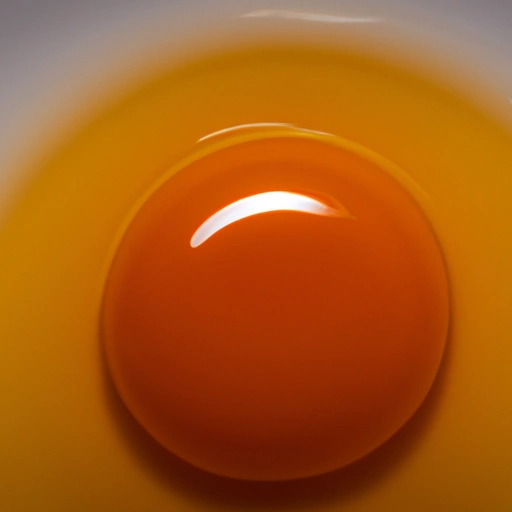Egg Yolk
Description

Egg yolk is the yellow part of an egg, rich in nutrients and a staple in many cuisines. It's separated from the egg white and used in various culinary applications, from emulsifying sauces to enriching baked goods. Egg yolks provide a creamy texture and a characteristic flavor to dishes and are valued for their ability to bind ingredients together. The yolk comprises proteins, fats, vitamins, and minerals that contribute to its nutritional density.
Common uses
Egg yolks are commonly used as a thickener in sauces, as a binding agent in baking, and to add moisture to cakes and pastries. They are also a primary ingredient in making custards, ice cream, and mayonnaise, as well as in enriching pasta and pastry doughs.
Nutritional value
Calories
An average egg yolk from a large egg (approximately 17 grams or 0.6 ounces) contains about 55 calories (230 kilojoules).
Protein
Egg yolks contain about 2.7 grams (0.09 ounces) of protein per unit.
Fat
Each yolk provides approximately 4.5 grams (0.16 ounces) of fat, of which 1.6 grams (0.056 ounces) are saturated fats.
Carbohydrates
Yolks have a minimal carbohydrate content, at about 0.6 grams (0.02 ounces) per yolk.
Vitamins
They are a source of vitamins A, D, E, K, and B-complex including B12 and folate.
Minerals
Important minerals found in egg yolks include phosphorus, selenium, calcium, and iron.
Health benefits
Egg yolks contain choline, which supports brain health, and lutein and zeaxanthin, which promote eye health. The vitamins and minerals in yolks contribute to bone strength, immune function, and energy production.
Potential risks
Egg yolks are high in cholesterol, which may be a concern for individuals with specific dietary restrictions or those at risk for heart disease. It's recommended to consume them in moderation.
Common recipes
Classic recipes featuring egg yolks include carbonara sauce, custard pies, lemon curd, and homemade mayonnaise.
Cooking methods
Egg yolks can be used raw in dressings or emulsions, gently cooked in sauces like hollandaise, or baked in desserts and pastries.
Pairing with other ingredients
Egg yolks pair well with dairy products, complementing the creamy textures and flavors, as well as with acidic ingredients like citrus or vinegar that balance their richness.
Summary
Egg yolk serves as a nutrient-dense ingredient essential in many traditional and modern recipes. Its versatility in cooking methods and pairing with other ingredients makes it invaluable in culinary arts worldwide. Although nutritious, egg yolks should be consumed in moderation due to their cholesterol content.